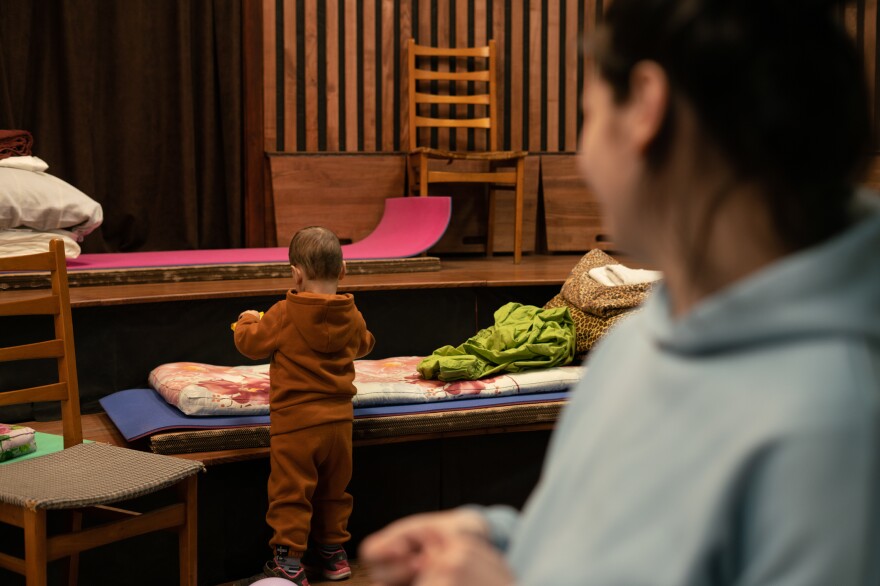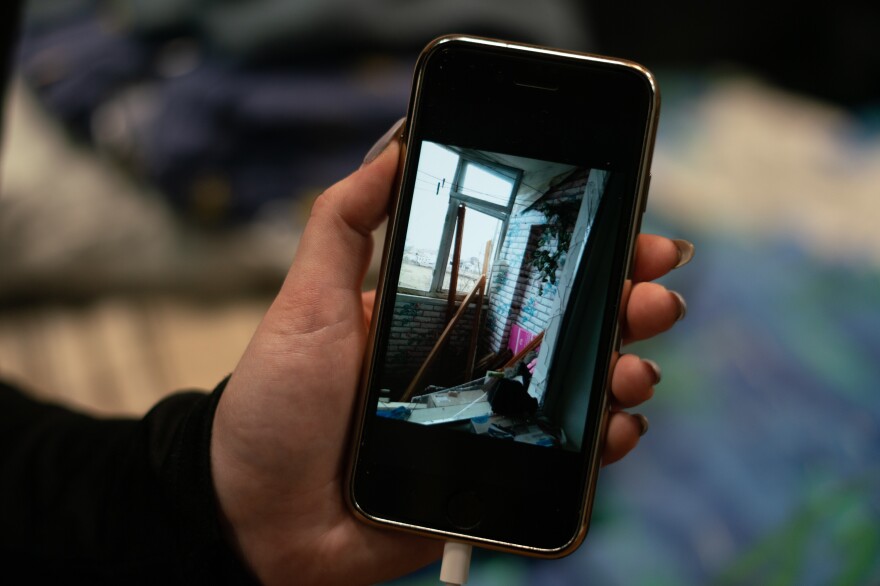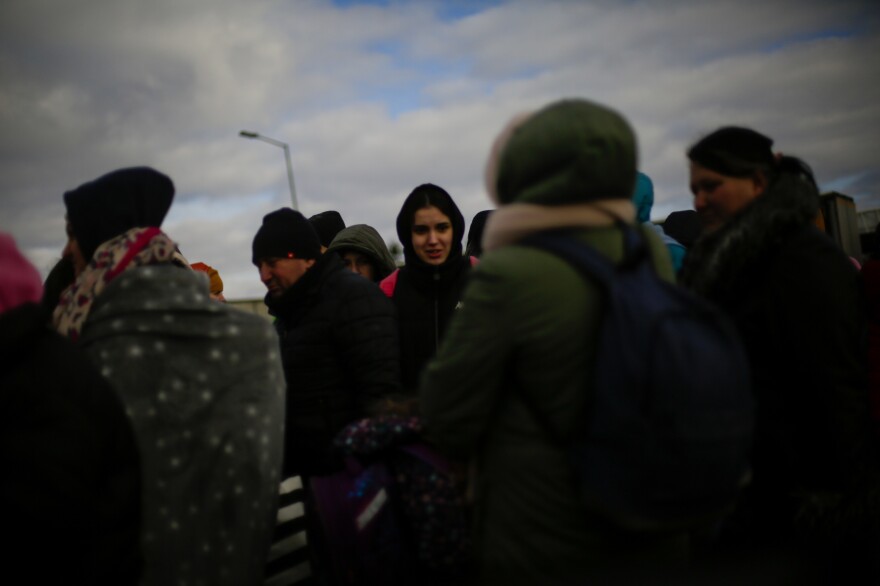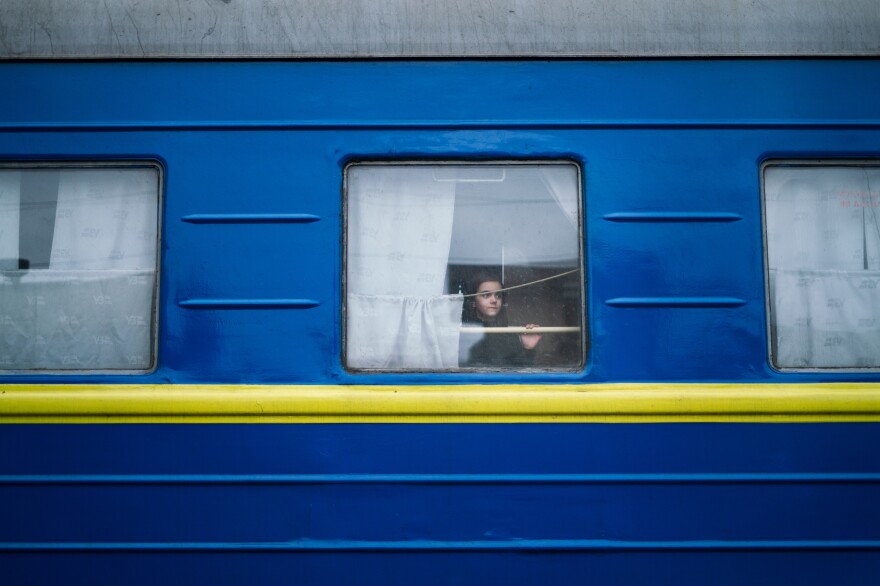More than 2 million people have already fled the Russian war in Ukraine, according to the United Nations' refugee agency, and many are passing through Lviv, a major tourist destination in Ukraine's western region, on their way to neighboring countries. In the last two weeks, Lviv has quickly become a main transit point for refugees coming from all over the east, housing hundreds of thousands of displaced Ukrainians. Many head for the border with Poland, but others choose to remain in the relative safety of western Ukraine for now.


Nadia Kuzhukhar, 27, left Kyiv with her sister and 2-year-old son, Maksim, leaving behind her husband, who'd joined the territorial defense on the first day of the war. Kuzhukhar said she is pregnant with her second child. She and her sister, 21-year-old Katerina Beliakova, paused for a brief respite in Lviv, spending the Saturday night in a church before heading off to their friend's house in Western Ukraine.
"We came without any food, without any clothes, with no stuff with us because we thought when the sirens went off we will just go to the metro station and just sit there for 15 minutes, but obviously it didn't happen like that," Beliakova said. The family lives near the airport in Kyiv and Nadia Kuzhukhar's husband urged them to get out of the city as quickly as possible.

Most of the displaced are women and children who are fleeing the fighting, while the government has mandated that men between the ages of 18 and 60 aren't allowed to leave the country. Thousands of men and women have stayed behind and voluntarily enlisted in Ukraine's Territorial Defense forces, too.The family boarded a train to Lviv without supplies, but found refuge at the Church of St. Lazarus, which, like many churches, schools, aid organizations, cultural centers and volunteers, is assisting people who have fled parts of eastern Ukraine with donated goods and places to sleep, including diapers for Maksim.

The two sisters are originally from Mariupol, which has been under siege. Six days had passed with no communication from their parents – the last they'd had were frightening photos and videos sent by their father. "We don't even know that they are alive," Beliakova said in a shaky voice. In one chaotic cell phone video, they could see their dad hurl himself to the ground, the sound of airstrikes in the background. Other images showed damage to the family's apartment building.

But a few days later, they managed a 30-second phone call with their father. He told them that he and their mother were staying in a shelter, though volunteers haven't been able to reach them due to the constant shelling. There are dead bodies in the streets. They only have apples to eat.
"We just want to live how we lived before," Beliakova mourned.
Copyright 2023 NPR. To see more, visit https://www.npr.org.









